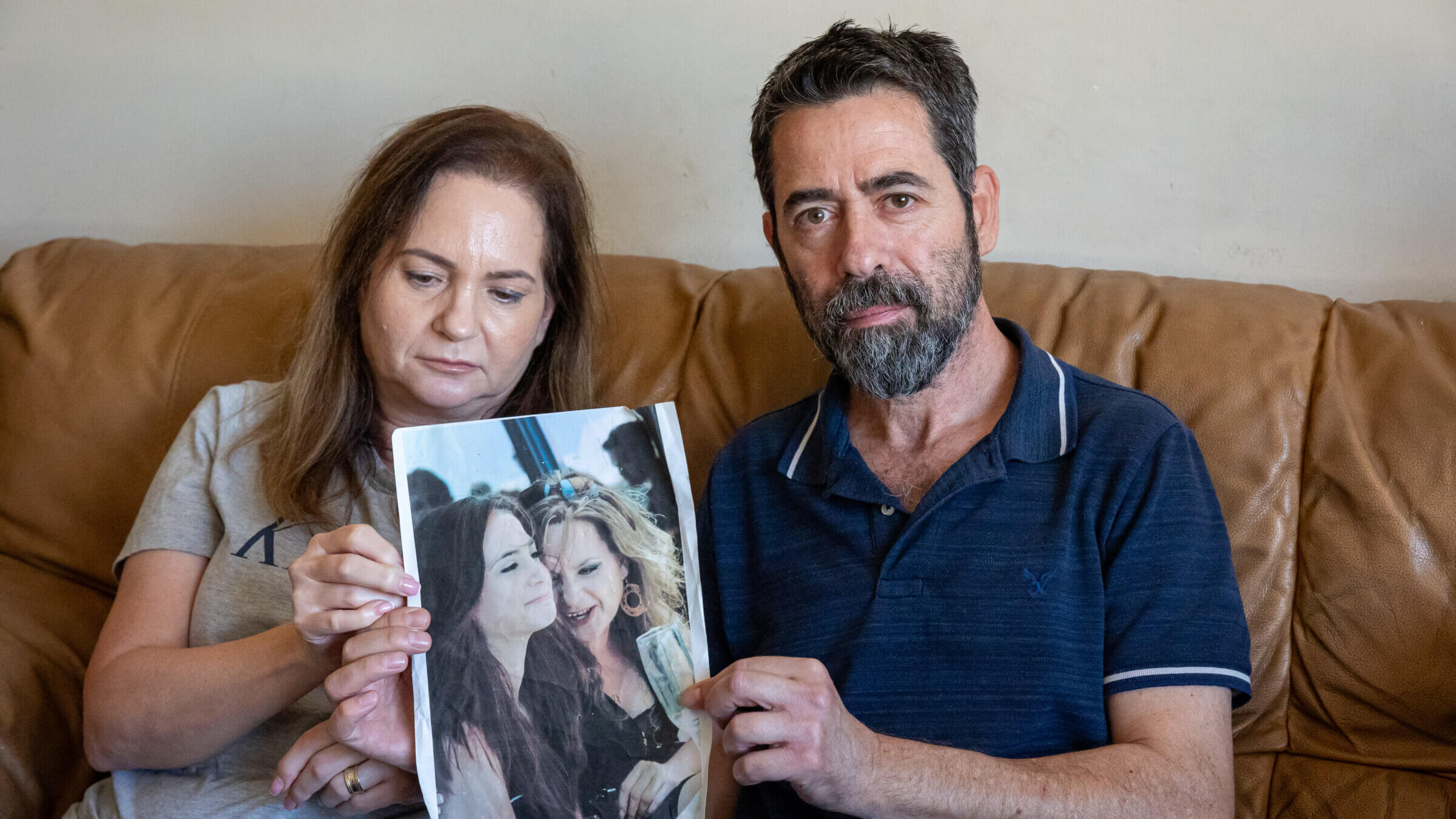At least 199 people are being held hostage by Hamas, Israel says, more than earlier estimates
The new estimate comes as Israel prepares for a ground invasion of Gaza that families fear could put their loved ones at risk

Ifat and Haim Haiman, of Petah Tikva, Israel, hold a picture of Ifat and their daughter Inbar. She was captured at the Nova music festival by Hamas terrorists on Oct. 7, 2023. Photo by Laura Ben-David for the Forward
(JTA) — Israeli officials have notified the relatives of 199 people that their loved ones are believed to be hostages in Gaza, an Israel Defense Forces spokesperson said on Monday.
The number marked a sharp revision of the army’s previous estimate of the number of Israeli captives, which had grown to 155 in the days after Hamas struck Israel Oct. 7, leaving thousands of people dead, wounded or taken hostage.
The new estimate comes as Israel prepares for a ground invasion of Gaza that families of the hostages fear could put their loved ones at further risk.
“We are making valiant efforts to try to understand where the hostages are in Gaza, and we have such information,” an Israel Defense Forces spokesman, Daniel Hagari, said at a press conference Monday, according to Times of Israel. “We will not carry out an attack that would endanger our people.”
Little information has emerged publicly about the condition, whereabouts or survival of the hostages after an initial flurry of videos released right after the attack. It was also not clear whether the IDF believed that 199 represented a comprehensive estimate of the number of hostages. The bodies of several hostages, who had been killed, were recovered when the Israeli military led a small incursion into Gaza ahead of the invasion.
They have held press conferences to call attention to the missing, created viral social media videos showcasing the names and information about the hostages and made available posters that volunteers have plastered in public spaces, including in New York City subway stations.
The hostages include women, children and the elderly and have drawn significant attention from international leaders, including President Joe Biden, who spoke with their families for 90 minutes on Friday, and U.S. Secretary of State Antony Blinken, who has been moving among Middle East countries trying to broker their release. A diplomatic source told the Times of Israel on Sunday that Qatar was involved in the effort as well but that Israel had so far declined to participate in talks.
“Israel will not hold negotiations with an enemy that we have vowed to wipe from the face of the earth,” the head of Israel’s National Security Council said on Saturday, eliciting ire from the families of the missing.
On Sunday, Israeli Prime Minister Benjamin Netanyahu met with representatives of the missing for the first time, vowing to do everything possible to bring them home. But a family that has not been part of the collective organizing appeared at the meeting and expressed support for Netanyahu, according to a Haaretz report, creating tensions with the others who have accused the prime minister of giving too little attention to their family members’ plight.
This article originally appeared on JTA.org.
A message from our CEO & publisher Rachel Fishman Feddersen
I hope you appreciated this article. Before you go, I’d like to ask you to please support the Forward’s award-winning, nonprofit journalism during this critical time.
We’ve set a goal to raise $260,000 by December 31. That’s an ambitious goal, but one that will give us the resources we need to invest in the high quality news, opinion, analysis and cultural coverage that isn’t available anywhere else.
If you feel inspired to make an impact, now is the time to give something back. Join us as a member at your most generous level.
— Rachel Fishman Feddersen, Publisher and CEO